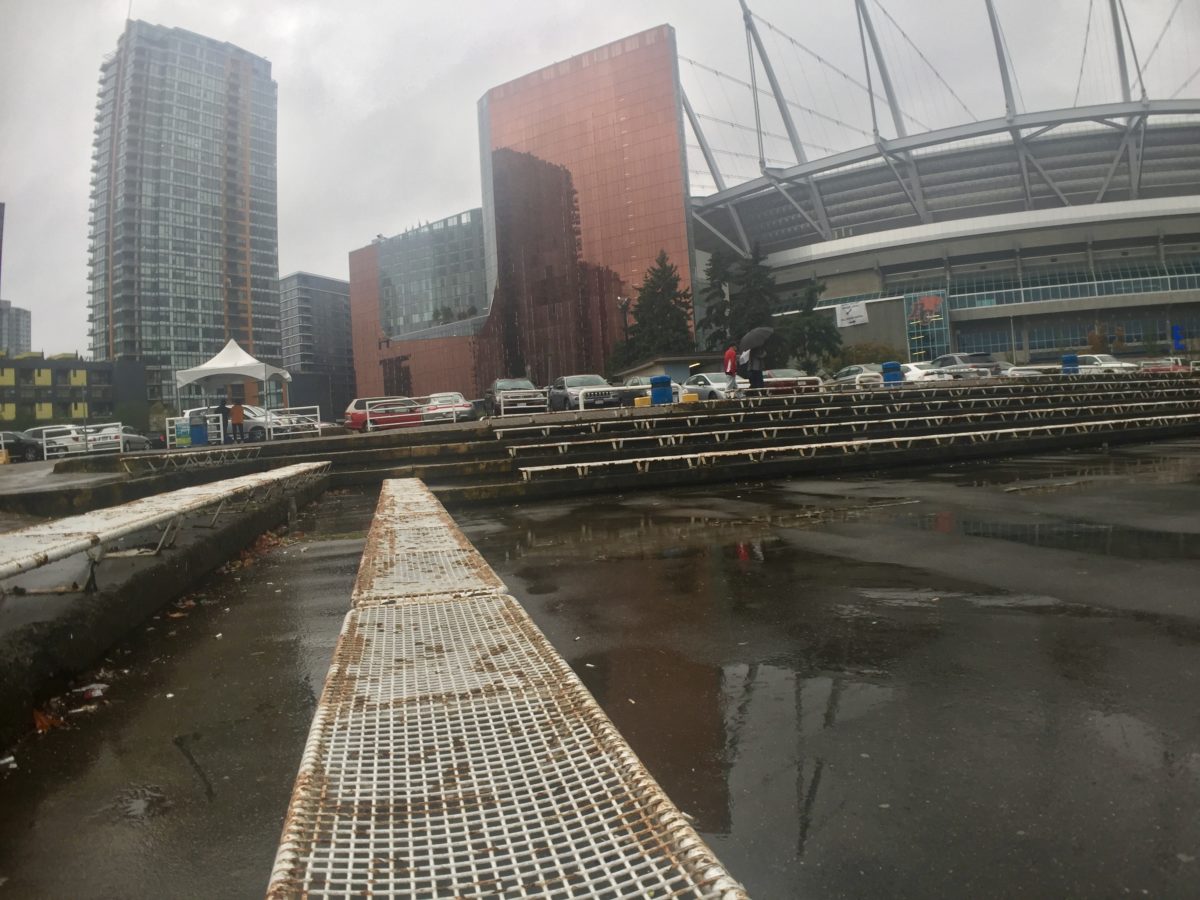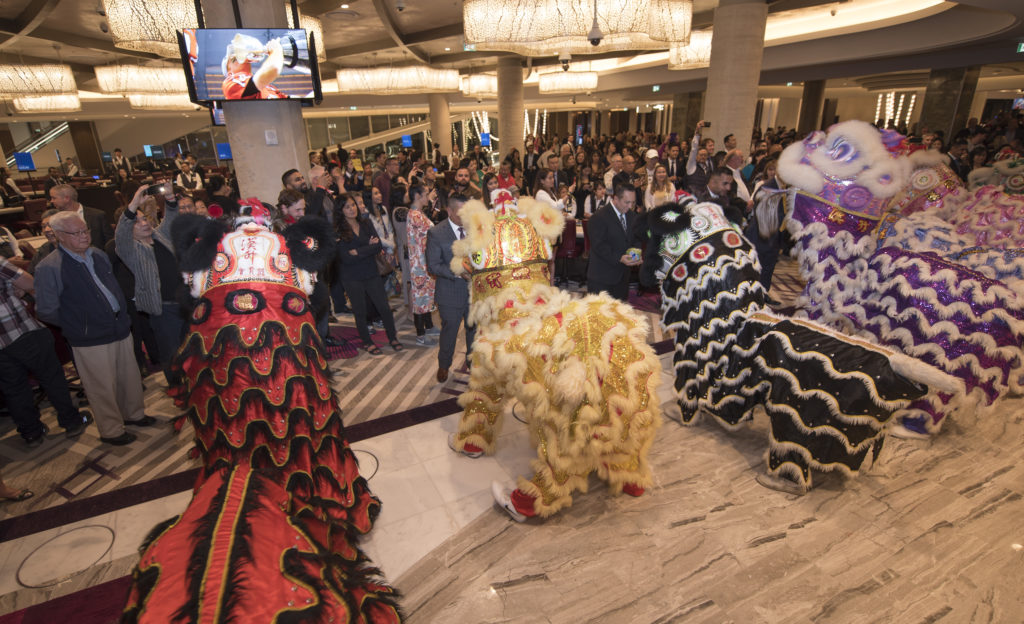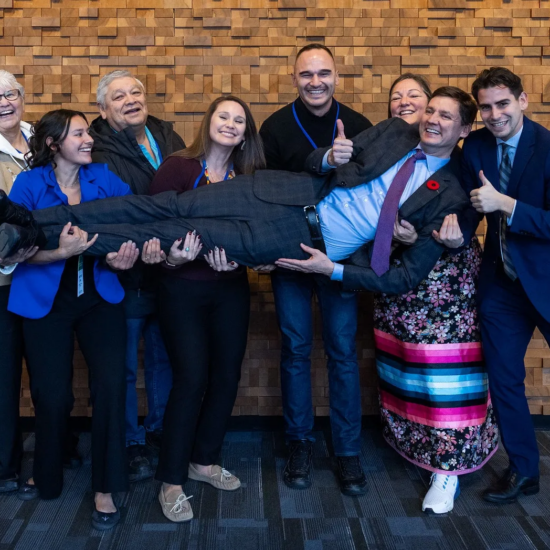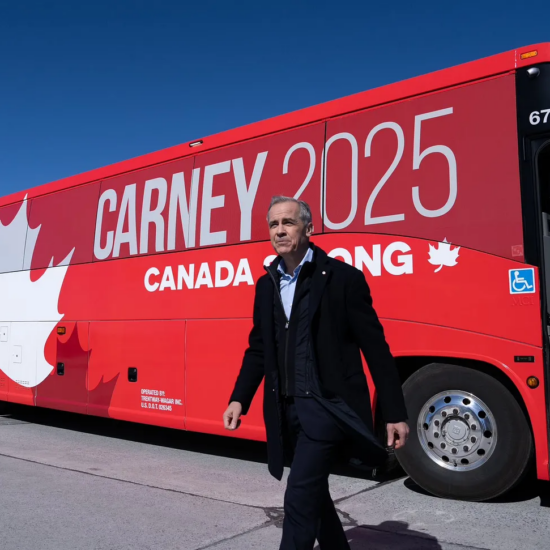
Bob Mackin
The new casino and hotel complex beside B.C. Place Stadium is struggling as its first anniversary approaches.
The second quarter report to shareholders by Dundee Corporation, which holds 35% of the company that operates Parq, said the so-called urban resort lost a whopping $80.8 million during the first six months of 2018.
“The initial ramp up of operations has been slower than anticipated due to a number of factors, including the regulatory cost and business impact of new anti-money laundering regulations applicable to casinos in British Columbia, which were implemented in December 2017,” said the June 30 report.

Grand opening of Parq Vancouver (Parq)
Dundee previously reported a $37.5 million loss for the first quarter of 2018. Dundee blamed the costs of operating the resort on a fully open basis for the first time, training and supervisory expenses and marketing costs to promote the Sept. 29, 2017 launch. The relocated and rebranded Edgewater Casino and two Marriott hotels were not fully operational until January.
Dundee also reported $26.6 million in foreign exchange losses at Parq, compared to gains of $17.4 million in the first quarter of 2017.
“Initial operations also bore the cost of negotiations that ultimately resulted in amendments to the collective bargaining agreement between Parq Vancouver and its resort workers [represented by Unifor local 3000],” the company said.
In a Feb. 22 news release, Unifor boasted the Parq workers had achieved the best wage scale in the B.C. casino industry. All gaming floor and beverage service returned to unionized positions and the contract included wage increases of up to an average 27.5% in year one, with pay raises of no less than 2% in the next two years.
In an Aug. 15 conference call with stock analysts, Dundee executive chairman Jonathan Goodman said hotel occupancy levels have increased as expected during prime tourist season, but he mentioned that food and beverage venues need some retooling and repositioning.
“Clearly, an adjustment period is ongoing as the industry adapts to these new [anti-money laundering] rules, but longer term remain bullish on the prospects for the gaming business and the industry in B.C., as a whole,” Goodman said. “Nevertheless, we have chosen to be cautious and adjust the carrying value of our investments in Parq.”
The report also said Parq may require additional cash injections from equity partners in order to fund shortfalls. In March, two of the existing partners put another $33.4 million into the project in order to meet construction, interest and hedging payment deadlines. Dundee’s share was $17.4 million. Parq has 600 slot machines and 75 gambling tables, 517 hotel rooms, 60,000 square feet of conference facilities, five restaurants, three lounges, a spa and 1,069-space underground parkade.
“There can be no assurance that Parq Vancouver will have access to revised financing on more favourable terms or at all, or that the corporation and its equity partners will have access to the necessary capital to fund any shortfalls. The corporation continues to carefully monitor its investment in Parq Vancouver.”
Goodman said Dundee is actively seeking ways to restructure the debt and improve Parq operations. Discussion with prospective capital partners is at an “advanced stage” and an update is expected in the second half of 2018, he said.
Attorney General David Eby, who is the minister responsible for casinos, did not respond for comment. While he was the opposition critic, Eby was skeptical about the viability of casino operator Paragon Gaming.
Paragon had said in 2011 that the project, which includes two Marriott hotels, would cost $450 million. It finally opened for more than $600 million, in time for China’s National Day Golden Week, when an influx of visitors was expected. Dundee’s report said the project’s total capitalization was nearly $957 million, of which Dundee invested $141.8 million.
BCLC pumped $32.5 million in subsidies into the B.C. Place casino’s underground parkade. The funds came from a facilities development commission scheme created under the NDP in 1997 and amended in 2006 under the BC Liberals to stimulate casino renovation and expansion. In 2001, the BC Liberals won the election on a platform that included a broken promise to not expand gambling.
The BC Liberal government picked Paragon in late June 2009 to develop and lease the property. A director of Paragon’s Canadian subsidiary, then-ICBC chair Richard Turner, donated $50,000 to the BC Liberals through his TitanStar Holdings company the month before the decision. Turner joined the board of the Paragon subsidiary that bought Edgewater out of bankruptcy in mid-2006, six months after he quit as BCLC chair. For the first three years, $8.5 million of the $9 million in lease payments go to the Musqueam Indian Band after a deal negotiated by Jessica McDonald in 2012.
Meanwhile, in an Aug. 14 call with analysts, Great Canadian Gaming Corp. CEO Rod Baker reported a $5.6 million year-over-year decline in revenue for the quarter ended June 30. He blamed the B.C. Government and Service Employees’ Union strike at Hard Rock Casino, where gambling revenue fell $4.2 million compared to the same period in 2017. Labour peace was reached and the Coquitlam casino returned to full operation in late July.
Overall, GCG reported $109.3 million net earnings for the first half of 2018, up from $45.3 million a year earlier, driven by expansion in Ontario. Table hold is consistent with 2017, except for River Rock, which has been “negatively impacted by the new source of funds procedures introduced by B.C. Lottery Corp. in January.”
During the call, Baker said there had been no impact on River Rock from the opening of Parq.
“I think there wasn’t a honeymoon period from our perspective because we didn’t see an impact,” Baker said.
Support theBreaker.news for as low as $2 a month on Patreon. Find out how. Click here.











